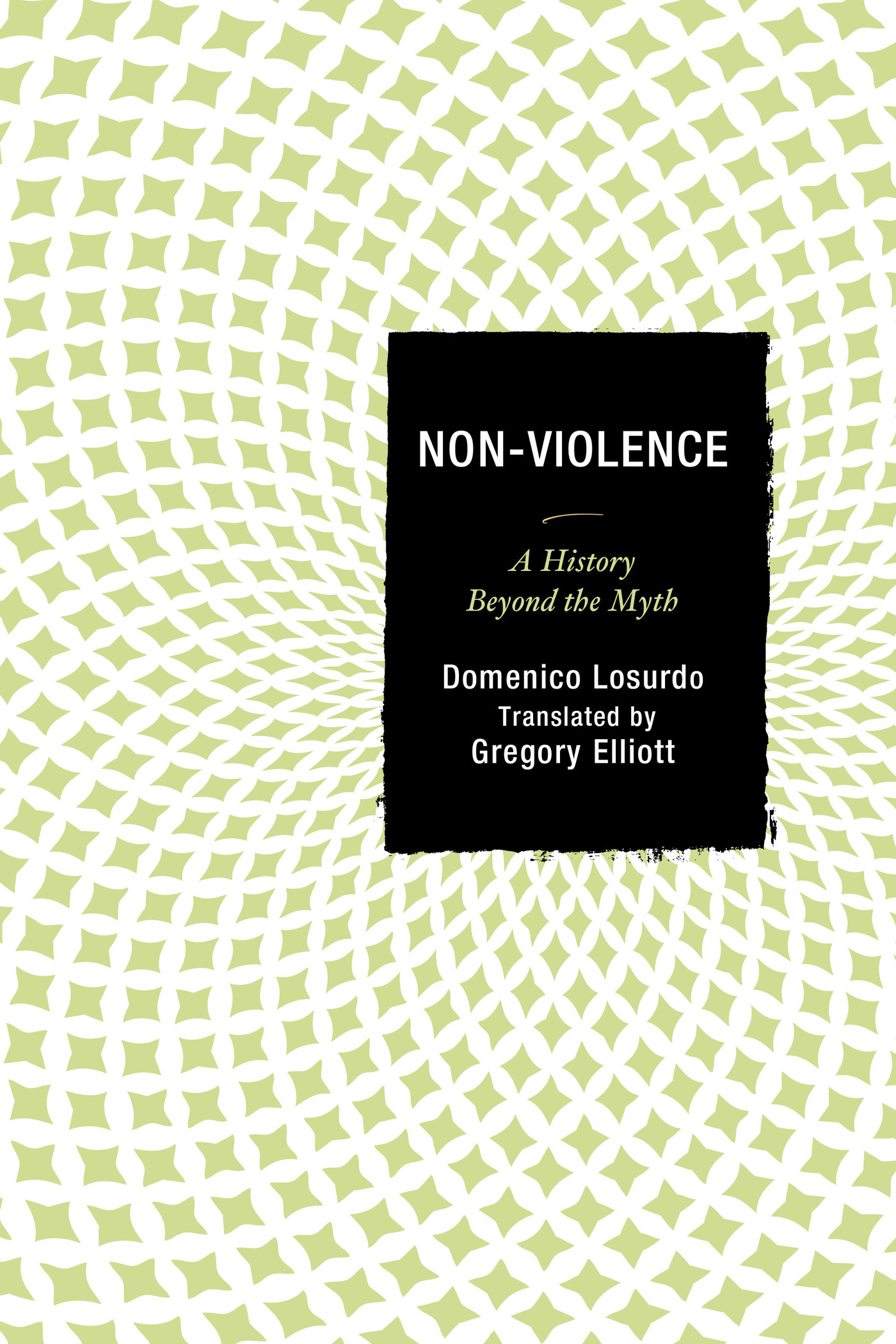Non-Violence
Non-Violence
A History Beyond the Myth
Domenico Losurdo
Translated by Gregory Elliott
LEXINGTON BOOKS
Lanham Boulder New York London
Published by Lexington Books
An imprint of The Rowman & Littlefield Publishing Group, Inc.
4501 Forbes Boulevard, Suite 200, Lanham, Maryland 20706
www.rowman.com
Unit A, Whitacre Mews, 26-34 Stannary Street, London SE11 4AB
Copyright 2015 by Lexington Books
All rights reserved. No part of this book may be reproduced in any form or by any electronic or mechanical means, including information storage and retrieval systems, without written permission from the publisher, except by a reviewer who may quote passages in a review.
British Library Cataloguing in Publication Information Available
Library of Congress Cataloging-in-Publication Data
Losurdo, Domenico.
[Non-violenza. English]
Non-violence : a history beyond the myth / by Domenico Losurdo ; translated by Gregory Elliott.
pages cm.
Includes bibliographical references and index.
ISBN 978-1-4985-0219-1 (cloth : alk. paper) ISBN 978-1-4985-0220-7 (electronic)
1. NonviolenceHistory. 2. PacifismHistory. 3. Peace movementsHistory. 4. Gandhi, Mahatma, 1869-1948. I. Title.
HM1281.L6713 2015
303.6'1dc23
2015000754
 TM The paper used in this publication meets the minimum requirements of American National Standard for Information Sciences Permanence of Paper for Printed Library Materials, ANSI/NISO Z39.48-1992.
TM The paper used in this publication meets the minimum requirements of American National Standard for Information Sciences Permanence of Paper for Printed Library Materials, ANSI/NISO Z39.48-1992.
Printed in the United States of America
Authorial Note
For help with bibliographical research and for reading the text, I am grateful to Stefano Azzar, Paolo Ercolani, Giorgio Grimaldi (who also compiled the index), and Emanuela Susca.
Introduction
From the Broken Promises of Perpetual Peace to Non-Violence
In Germany especially, a festive climate accompanied the outbreak of the First World War: photographs convey images of youth rushing to enlist with the enthusiasm associated with keeping an erotic engagement. Leading intellectuals and great swathes of the population felt the enchantment of what Max Weber called a grand and marvelous war. An exceptional witness described the spiritual climate of Vienna in the days immediately following the declaration of war as follows: Each and every individual was required to cast his little, paltry ego into the ardent great mass to be purified of any egotism. In that majestic moment, all differences of class, language and religion were submerged in the great current of fraternity.
The terrible ordeal facing the country dictated popular unanimity, a fusion of peoples lives and consciousness never experienced before. The outbreak of the massive conflict marked an hour of the greatest solemnitythe hour of depersonalization (Entselbstung), of integration into the community (gemeinsame Entrckung in das Ganze). An ardent love of community spread among people, and they felt powerfully united with one another. Having formed a brotherhood they were ready to destroy their individual identities by serving. The idiom of mystical experience employed by Marianne Weber here was widespread in the culture and journalism of the time. Men certainly hastened to the front in their readiness to die. But in Germany, above all, the dominant culture and philosophy celebrated the test of arms and readiness for sacrifice as a kind of spiritual exercise. The latter had supposedly extracted the individual from calculating rationality and the banality and vulgarity of everyday existence, realizing the communion of spirits hitherto rendered impossible by social conflict and attachment to material goods. Soldiers at the front were indeed forced to face sacrifices and privations and defy death on a daily basis. But this severe ordeal proved to be a beneficent pedagogy, which transformed callow youth, lacking in firmness, into men with a rich, mature personality and a more virile, more profound sense of existence. Crude, dour natures returned from the front refined, with a more acute sense of the values of community life and solidarity.
Benedetto Croce anticipated a regeneration of current social existence from the war that had just erupted, and in which Italy had not yet intervened. But this mystificatory communitarianism of war, and this passionate quest on the battlefront for authenticity, intensity, and spiritual plenitude could not survive the subsequent painful mass experience: what awaited men in the trenches were mud, total regimentation, and death. It is true that across the Atlantic, immediately following the cessation of hostilities, Herbert Hoover, a prominent member of the American administration and future president of the United States, attributed a function of purification of men to the conflict that had just ended. But this was a belated, largely artificial reprise of a motif that now had little resonance in popular consciousness.
Twenty years later, not even the initial triumphant victories of Hitlers Blitzkrieg could recreate the enthusiasm of JulyAugust 1914. Pace postmodernists, who miss no opportunity to ridicule the idea of progress, major historical experiences, which are often tragic, do not occur without leaving behind profound traces and more or less diffuse lessons. It is right and fitting to underscore the extremely tortuous character of the historical process, but to speak of progress ultimately means acknowledging the human capacity to learn and the irreversibility of historical time, the impossibility of reverting to a time before the historical experiences that marked entire generations. The magical atmosphere of JulyAugust 1914 will never be recreated: what followed was a disenchantment that has left its mark. War cannot be compared with spiritual exercises and cannot be welcomed as a festivity or a necessary, positive moment in the process of the creation and maturation of authentic existence. In Hegels terms, the experience of the seriousness and suffering of the negative cannot be erased.
The same applies to revolution. In its time, the fall of Czarism and the February days of 1917 were saluted in Russia as an Easter of resurrection. Christian circles and significant sectors of society expected a total regeneration from it, with the emergence of a spiritually renewed and intimately united community. There would no longer be room for the division between rich and poornot even for theft, lies, swearing, and drunkenness. This prospect was given even more emphatic expression a few months later: What is in the process of being realized is the fourth psalm of the Sunday vespers and the Magnificat: the powerful overthrown and the poor freed from poverty. Thus a French observer (Pierre Pascal), who was a fervent Christian, greeted the Bolshevik October, while outside Russia the young Ernst Bloch, in the first edition of The Spirit of Utopia, anticipated the disappearance of commercial morality, which consecrates everything that is most contemptible in man, and the transformation of power into love.
Such ingenuous enthusiasm, stimulated in February by the fall of an ancien rgime that had become universally hated and in October by the end (or beginning of the end) of a bloodbath now regarded by everyone as intolerable and monstrous, could not survive the emergence of contradictions and bloody conflicts without the new order. Like the mystificatory communitarianism of war and the celebration of the test of arms and life at the front in a spiritualist, existential key, exalted revolutionary hopes of a total renewal of society and of human existence as such experienced the terrible impact of actual historical developments. In both cases, people underwent the indelible experience of the seriousness and suffering of the negative.
Next page
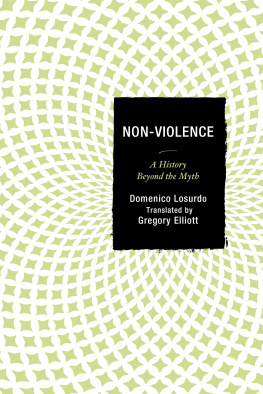
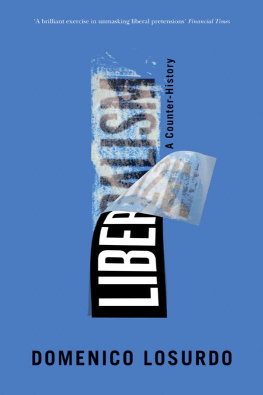
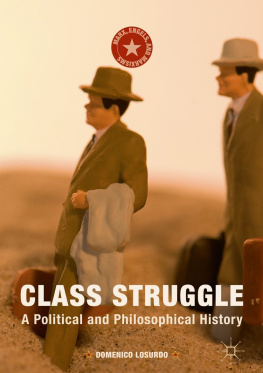
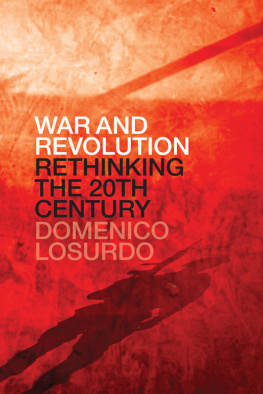
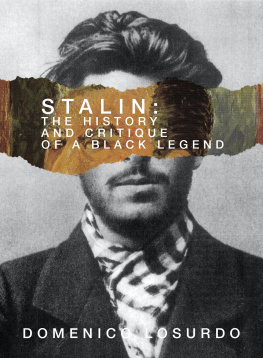
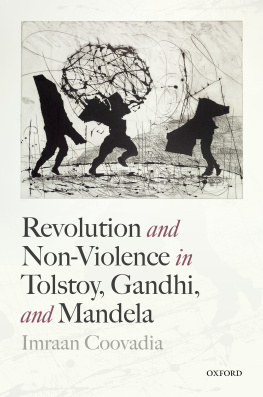
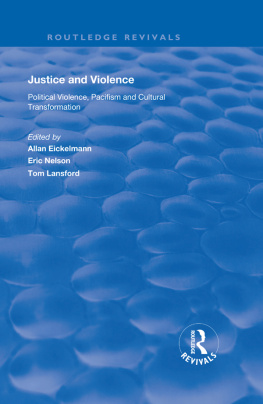

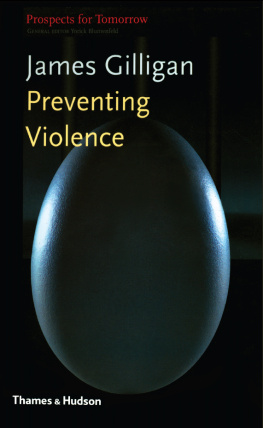
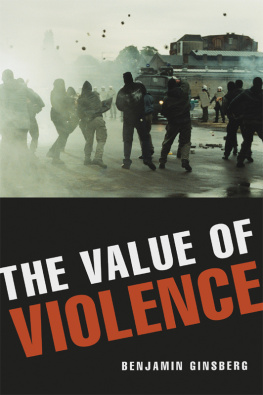
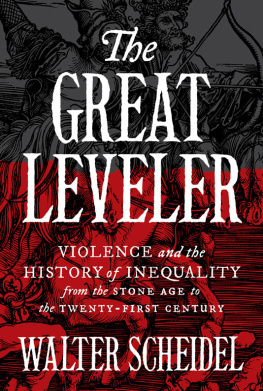
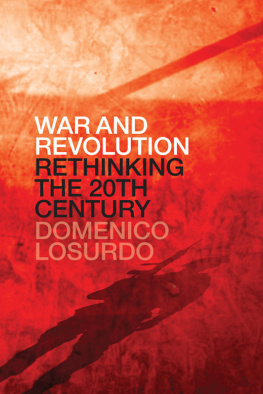
 TM The paper used in this publication meets the minimum requirements of American National Standard for Information Sciences Permanence of Paper for Printed Library Materials, ANSI/NISO Z39.48-1992.
TM The paper used in this publication meets the minimum requirements of American National Standard for Information Sciences Permanence of Paper for Printed Library Materials, ANSI/NISO Z39.48-1992.